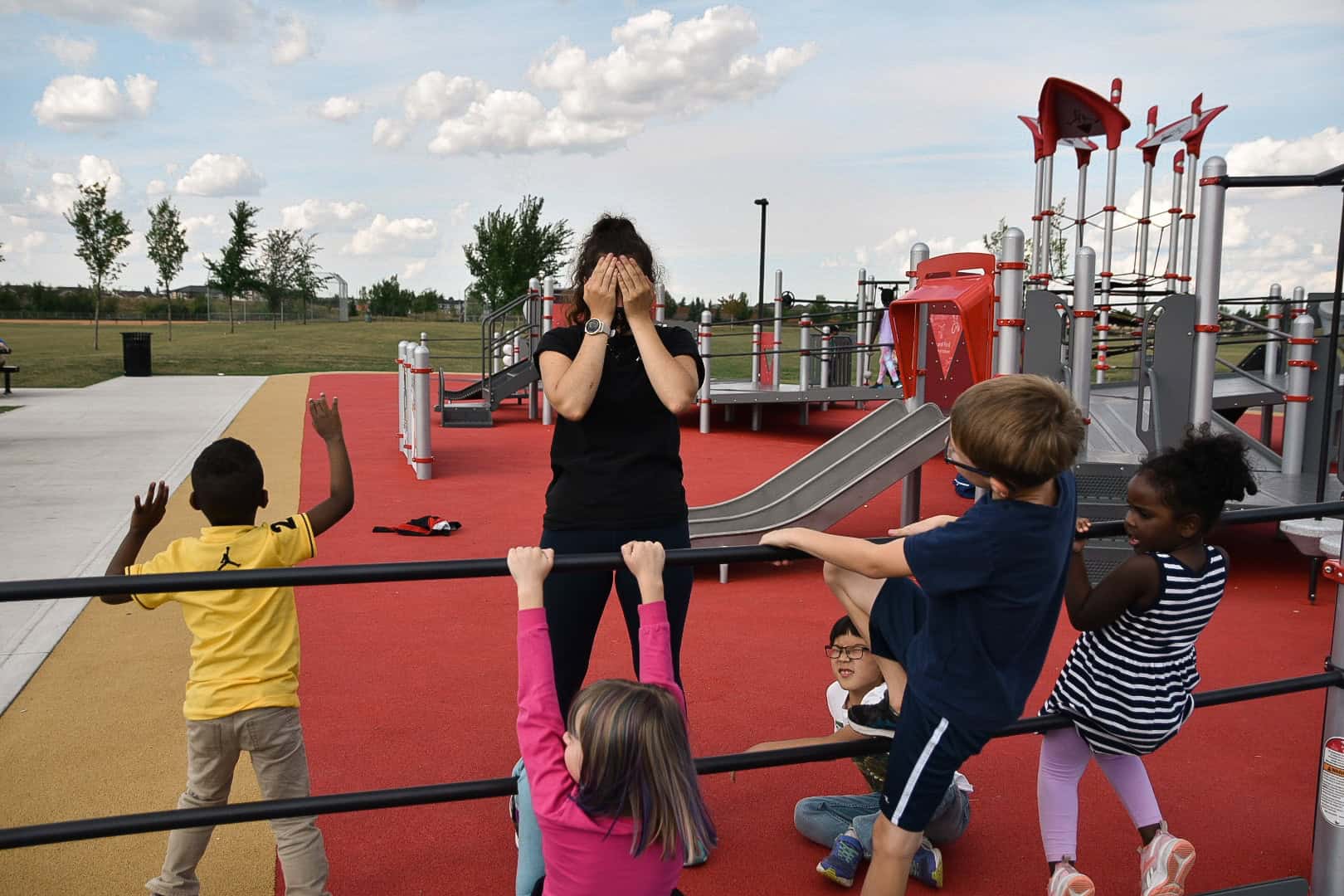
Promoting Inclusive Play in Alberta: Inclusive Playground Programs
Thank you to Carrie Millar, Dr. Jennifer Leo and Dr. Kelly Arbour Nicitopoulos for providing this post.
Launched in 2019, Promoting Inclusive Play in Alberta (PiPA) is a collaborative initiative between The Steadward Centre for Personal & Physical Achievement at the University of Alberta and Canadian Tire Jumpstart Charities. The aim of the initiative is to get more Albertans of all abilities more active, more often! By creating accessible, inclusive physical activity and play opportunities for families throughout Alberta, PiPA hopes to contribute to quality physical activity participation for children experiencing disabilities.
Children and youth experiencing disability are less likely to engage in unstructured physical activities compared to their peers. In comparison to before the pandemic and restrictions, 62% of children with disabilities are engaging in less outdoor physical activity (Canadian Disability Participation Project, 2021). Playground play in particular, offers children a variety of unique sensory and motor experiences. However, playgrounds are often spaces where children experiencing disability feel isolated from their peers. Inclusive playgrounds, where children of all abilities are able to play freely and safely, are important for promoting equal and equitable access and a sense of dignity, belonging and meaning for all children and their families.
This summer, we launched an inclusive play program at our local Canadian Tire Jumpstart playground – the Clareview Inclusive Playground in Edmonton. The inclusive playground served as the platform for a novel approach to designing inclusive recreation for kids of all abilities, through intentional play programming created by The Steadward Centre. The playground itself consists of accessible and inclusive playground equipment for a diversity of mobility, sensory, cognitive, and emotional needs. Led by Steadward Centre Play Leaders, the playground program was designed to utilize the unique features of the Jumpstart playground and encourage movement and exploration in a fun and social environment for children both with and without disabilities. The program was offered twice per week and in a free, drop-in style delivery where children could join in for an entire 2hr session or just a few games. Play Leaders provided a combination of structured games and activities, as well as facilitated child-led play and social inclusion on the playground.
As one of the Play Leaders delivering this new program, I (Carrie Millar) can promise that an inclusive playground program is going to be a lot of fun- but there are also some considerations for a successful inclusive experience!
- Visual Communication – prepare visual schedules or supports for your play plan ahead of time such as photos of the equipment you will use or images that describe a game or rules. This will help you communicate with children who use alternative communication and provide a visual flow for the session that kids can refer to as they go. In a pinch? Use a small whiteboard!
- Loose Parts – loose parts play is not only enriching to the play experience, it can also help you engage with potential participants on the playground and adapt games to be more inclusive on-the-go. If the playground is not very accessible, you can use loose parts (scarves, balls, rope, chalk, shakers etc.) to help create games and play off the equipment, where everyone in your group is able to take part.
- Play Themes – it can be hard to know where to start when planning playground play. An approach we used was to theme the sessions around different play experiences or types of equipment. We tried themes like heights/levels and vestibular play. When you plan games and activities ahead of time, you can also anticipate how to adapt them to be more inclusive of sensory, mobility, cognitive or behavioural needs.
- Trained Play Leaders – provide Play Leaders with training and resources on inclusion, play, and child development. Play Leaders should feel confident and effective in engaging with children of all abilities and be able to modify games and activities to be inclusive of their whole group. Unsure about training opportunities? Contact us at The Steadward Centre for more information!
- Identifiable Play Leaders – be obvious to children and families that you are there for them and they can approach you to play! We used logo shirts, posters with our pictures and a whiteboard with our names and our play theme for the day.
- Choice – provide kids with choice in what they want to play but also how they would like to play. This will provide children with disabilities with greater quality of participation. Many children already know how they like to move, play and adapt games!
Inclusive playground programming is a great way to increase and support inclusive play in public, outdoor spaces. We encourage you to advocate for inclusive play and playgrounds in your community! For ideas on what makes a playground inclusive, check out the Inclusive Playground Resource we contributed to with the Canadian Disability Participation Project. Play is a fundamental right of all children – let’s ensure that play spaces are accessible and inclusive to each child.
Carrie Millar is a Community Impact Coordinator within the Faculty of Kinesiology, Sport, and Recreation at The Steadward Centre.
Dr. Jennifer Leo is the Director of The Steadward Centre for Personal & Physical Achievement. Her research focuses on understanding the meaning of physical activity experiences for people with disabilities, including perceptions of inclusion and the preparation of fitness professionals.
Dr. Kelly Arbour-Nicitopoulos is an Assistant Professor in the Faculty of Kinesiology and Physical Education at the University of Toronto. Her research focuses on evidence-based practices for promoting physical activity across the lifespan in populations living with physical disabilities.

